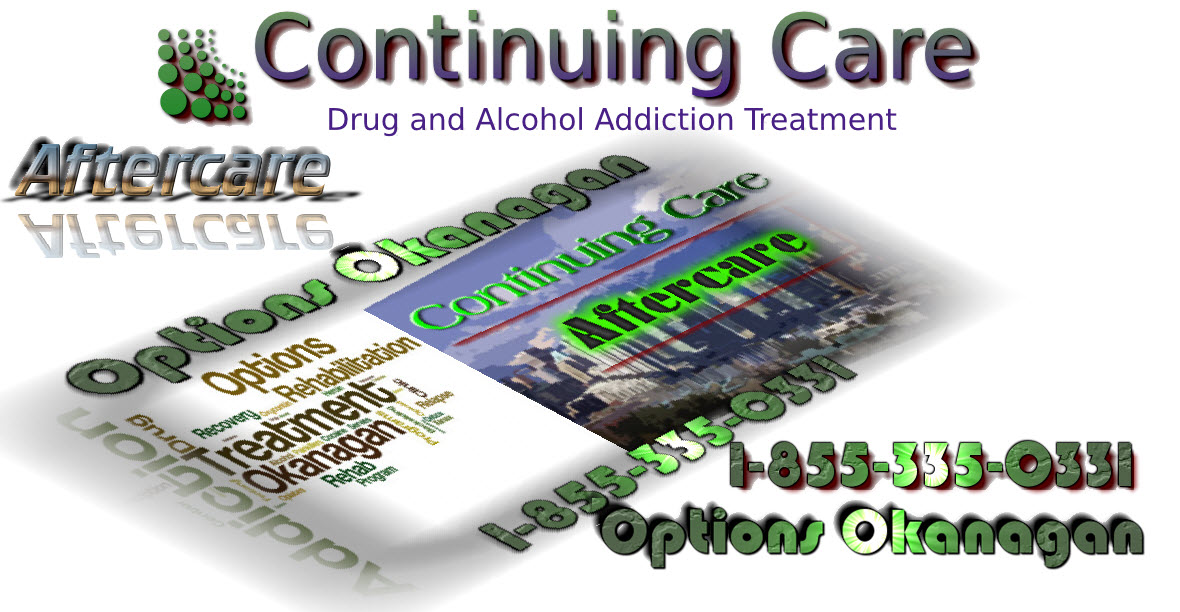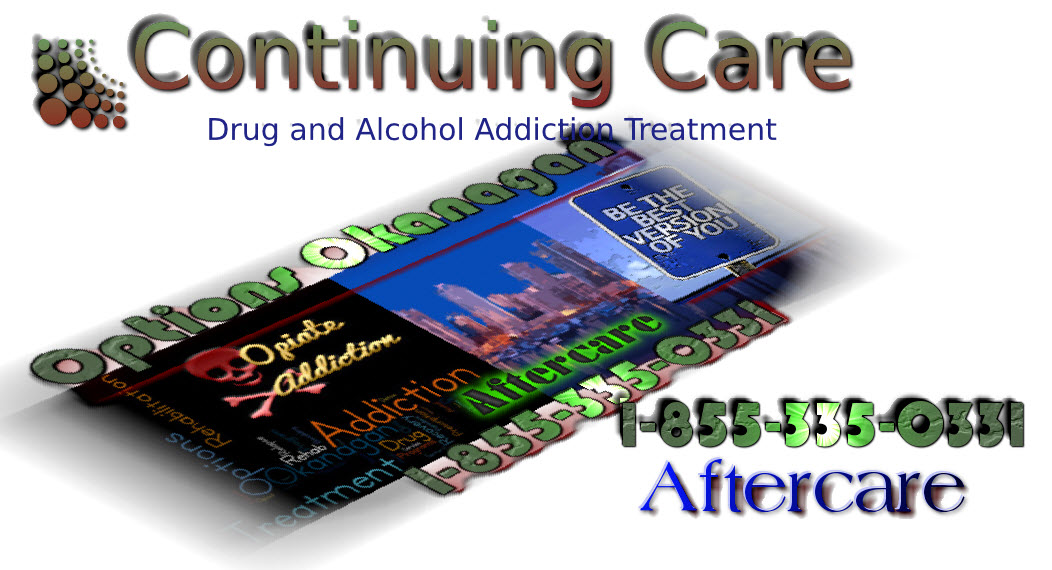Why aftercare and continuing care is so important for rehab treatment patients in Vancouver, Victoria and Kelowna, British Columbia – Options Okanagan Treatment Centers in Kelowna, British Columbia treating opiate and alcohol addiction and recovery.
A Long, Long Road To Recovery
Aftercare has never been a more important part of the recovery process. First year relapse rates are as high as 80% nowadays – certainly something to take seriously. The more we understand addiction, the more we know that patients struggle particularly during the first year of treatment. Economic hardship, family matters, or plain inability to resist the temptation and break some old patterns are enormous obstacles that all patients face when leaving residential treatment, often rendering them unable to reintegrate into society, or worse, having them relapse as a direct result.
Life May Get In The Way
An aftercare plan needs to address each and every aspect a patient is likely to face once they’re through inpatient rehab. This should include relationship dynamics, family interaction, vulnerability to temptation and more practical concerns such as overall health and financial stability. This sort of issue has to be addressed very early during the treatment. Every patient has an unique background, so they face different circumstances that may trigger relapse. It’s the therapist’s job to identify the issues of an individual patient and help them manage concerns throughout the process. If they get a nice head start, it’s going to be a lot easier for them to face the world.
A Family Matter
Stress related to one’s family is one of the most prominent causes of relapse. When patients have trouble rejoining their family, they’ll often feel as if they’ve lost their support system. Common causes for tension include the patient refusing to accept boundaries set by the family, or a family’s inability to provide the support the addict needs. Unrealistic expectations and general confusion will often lead to harmful interactions – but this can be fixed if they go through family therapy education beforehand. When both parties are clear on what they need to reconnect successfully, the transition tends to be a lot smoother.
Surviving The First Year
The good news is relapse rates tend to decrease significantly after one year out of treatment. After this time, lots of patients have successfully set up a routine in place, plus designated resources that they can depend on if they feel they’re going to relapse. They are free to call their sponsor, contact their therapist or reach out to the doctor who took care of them at the treatment facility. After five years, relapse rate is even lower – there’s no certain guarantee, of course, but patients tend to stay clean after that time has passed. The first year out of treatment is the most critical part to determine a patient’s long term success, since it’s the time when they’re learning to live a new life. There will definitely be some roadblocks throughout the way – the reason why treatment facilities need to offer support networks to lower their vulnerability after rehab.
Staying In Touch – Aftercare And Continuing Care
On a level or another, aftercare should be tied to a patient’s discharge plan. Whether it takes place in form of a referral to NA or AA meetings, regular patient follow-up, or at least transition to supportive housing, a patient should never lose their lifeline to the facility once they’re done with treatment. The first year is extremely important for the patient’s success – we have a much larger responsibility with our patients than merely being there to admit them if they become addicted another time. We believe in making an effort to protect patients from becoming yet another tragic statistic in such a time when they’re so prone to relapse.
A Resource Lacking
Despite the need for patient follow-up and after care, many facilities do not properly offer them these important recovery resources. In many, communication ends as soon as the patients exit the building, creating a social vacuum in which they’re forced to figure out their way throughout a new life. At Options Okanagan, we offer comprehensive follow-up services which make sure our alumni stay on the right track to recovery. We are committed to each and every patient, well after they leave the premises. Contact Options Okanagan at 1-855-335-0331 right now if a loved one is struggling with substance abuse – or if you’re going through that yourself.
Options Okanagan Opiate and Alcohol Treatment Centers in Kelowna, Salmon Arm and Vancouver, British Columbia – Men and Women are recovering and healing from Alcohol and Drug Abuse at our treatment center here in the Okanagan right now.
Our unique and distinctive Opiate Drug and Alcohol treatment program allows men and women to come in from Calgary as well as Edmonton as we offer airport pickup.
Numerous clients come to us from Vancouver, Calgary and Edmonton and other locations in Alberta and even other provinces for Opiate addiction treatment, heroin drug treatment, many other drug and alcohol addictions for rehabilitation because of the uniqueness of our treatment center.
Our Treatment Location:
Options Okanagan Opiate Treatment Center
551 Sherrydale Crescent, Kelowna, British Columbia, V1V 2E6
Toll Free Phone Number : 1-855-335-0331




